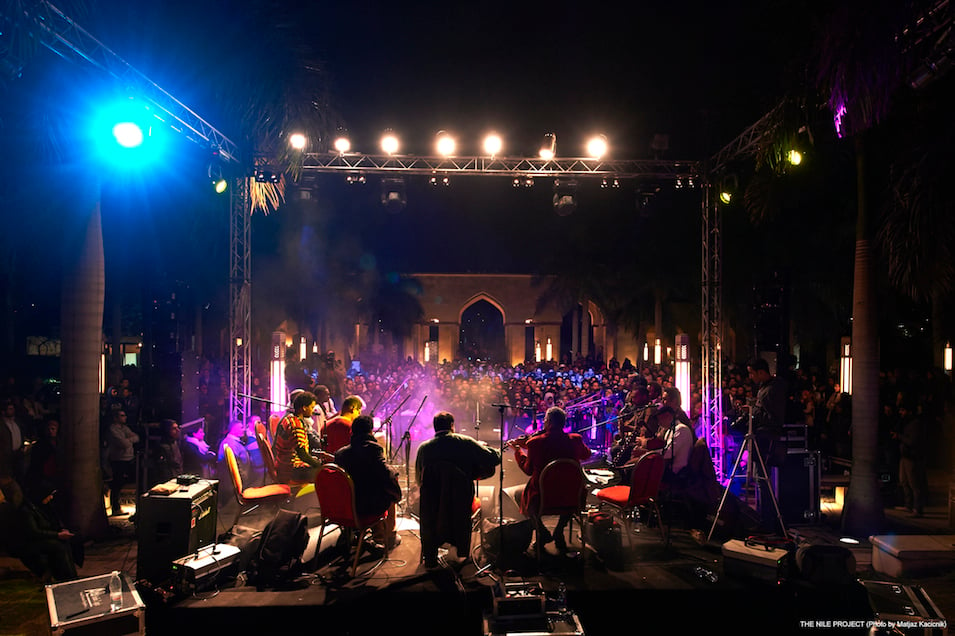The Nile River knits together 11 African countries, but the region isn’t often considered as a whole. Ethnomusicologist Mina Girgis started the Nile Project to change that. “We needed to redraw the geography in the popular imagination in order to get people to start seeing how all of these countries rely on the same resource,” he says.
Girgis, a native of Egypt, felt disconnected from other river-bound countries like Ethiopia. His project, which will perform at the University of Maryland between April 26 and 28, uses music as a starting point for conversations about cultural understanding and a sustainable watershed. As the only source of renewable water in the area, the Nile is a precious commodity—one that could cause tension as climate change and population growth make water less accessible.
For Girgis, music can help prevent conflict. And that’s exactly why he’s taking his message across the globe. What started as a concept for African people by African artists has expanded to a traveling troupe advocating for the Nile basin and its water issues. Through performances and panels, Girgis and his group of musicians demonstrate how music can start a dialogue about culture. “Music can really play a significant role in increasing cross-cultural empathy,” Girgis says. “Musical curiosity can drive cultural curiosity, and cultural curiosity can drive cultural understanding.”
The project’s musicians participate in residencies, where they work together and mix traditional and modern musical styles. East African musicians learn Egyptian instruments, while Egyptians learn Ethiopian rhythms. Egyptian singer Dina El Wedidi, a protege of Brazilian guitarist Gilberto Gil, became a part of the project three years ago and says it has made her more aware of her relationship to the rest of the continent. “In Egypt, we are really into Arab culture more than African culture,” she says. “The Nile Project gives me the opportunity to think about the African part in my Egyptian identity as a singer.”
At first, she struggled to mesh her style with those from other countries, but she says the last tour “opened her mind.” El Wedidi, who will join other Nile Project artists in DC’s upcoming performance, sees the project as a step towards cooperation.
The water conflict in the Nile basin hasn’t reached a flashpoint, Girgis explains. So music still has the opportunity to reach across borders and encourage cooperation in the region. “Through that process of learning and dialogue, we can become Nile citizens,” he says.
The Nile Project performs at Clarice Smith Performing Arts Center’s Dekelboum Concert Hall April 26 at 7 PM. Panels include “the Female Perspective on the Nile” at University of Maryland’s Van Muching Hall April 27 at noon, “the Role of Musicians in Peace and Environmental Movements” at the Museum of Natural History’s Baird Auditorium April 27 at 6:45 PM, and “Crowdsourcing Solutions for a Sustainable Nile Basin” at Clarice Smith Performing Arts Center’s Leah M. Smith Lecture Hall April 28 at 7 PM.
















